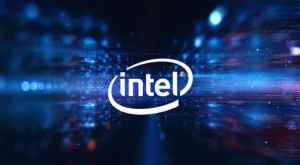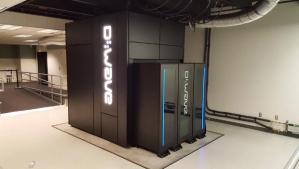Definition of quantum computing companies
An increasing number of quantum computing companies are emerging globally, with the goal of creating operational processors and the hardware and software that enable them. Let’s explore the landscape of quantum computing companies:
- Quantum Computing Giants:
- Companies such as IBM, Microsoft, and Google are at the forefront of the quantum revolution. They are building quantum computers that aim to perform tasks beyond the capabilities of classical computers or achieve results that would take classical computers thousands of years1.
- Hardware-Focused Quantum Computing Companies:
- These companies are dedicated to developing quantum hardware. They work on building and improving quantum processors, qubits, and other essential components.
- Examples include IBM Qiskit, Rigetti Forest, and Microsoft QDK2.
- Software-Focused Quantum Computing Companies:
- These companies focus on quantum software development. They create tools, frameworks, and algorithms that enable efficient programming and utilization of quantum computers.
- Notable players include Project Q, which provides a quantum software framework2.
- Startups and Key Enablers:
- The quantum ecosystem includes promising startups with innovative research, products, or services. These startups contribute to the advancement of quantum technology.
- As quantum computing becomes more mainstream, the ecosystem of suppliers, hardware companies, and software companies continues to grow more complex3.
- Applications Across Industries:
- Quantum computing has the potential to revolutionize sectors like healthcare, cybersecurity, and finance. It presents novel avenues for tackling computational challenges that classical computers struggle with.
- While quantum computing remains an enigma to many, companies are actively working to enhance accessibility and usability of this state-of-the-art technology3.
In summary, quantum companies are pushing the boundaries of computation, and their efforts span both hardware and software domains. As technological progress continues, we can expect more breakthroughs and applications in the quantum realm45.
Next I should list the best of the quantum working companies so far and possibly may find out what are they exactly doing in that hot field of technology. Certainly! In the fascinating realm of quantum computing, several companies are making significant strides. Let’s explore some of the key players and emerging startups in this cutting-edge field:

Intel (INTC)
Intel, a tech giant, is actively investing in quantum computing research and development. Their focus includes both hardware and software aspects of quantum technology1.
Certainly! Intel, a powerhouse in the tech industry, has been actively advancing quantum computing. Let’s delve into some of their significant quantum projects:
- Spin Qubit Technology:
- Intel has taken a unique approach to scaling quantum computers using spin qubits (also known as quantum dots).
- In October 2022, Intel demonstrated exceptional yield of quantum dot arrays using transistor fabrication technology1.
- Quantum SDK:
- Intel announced the Intel Quantum SDK, designed to help developers learn how to program quantum algorithms. It’s accessible through Intel’s cloud service.
- The SDK enables classical computing developers to collaborate with quantum developers, using a programming language familiar to them. It also includes a quantum runtime environment for executing hybrid quantum-classical algorithms23.
- Addressing Quantum Complexity and Scalability:
- Intel recognizes the challenges associated with current quantum systems, including complexity and costs.
- Their quantum computing projects aim to simplify devices and reduce costs.
- They focus on scalability, understanding that achieving practical quantum computing requires a full-stack system with millions of qubits4.
- Post-Quantum Cryptography:
- As part of their three-phased approach to address threats posed by quantum computers, Intel is making progress toward post-quantum cryptography3.
Intel’s rich history in delivering complex technologies positions them well to excel in quantum computing. Their commitment to innovation and scalability continues to drive advancements in this exciting field! 🚀🔬

Honeywell (HON)
Honeywell is a leader in trapped ion quantum computing. Their approach involves using ions as qubits, which allows for stable and reliable quantum operations1.
Certainly! Honeywell Quantum Solutions (HQS), a pioneering force in quantum computing, has been making significant strides in this field. Let’s explore their notable projects:
- Trapped-Ion Quantum Computers:
- Honeywell launched its first commercial trapped-ion quantum computer, the 10-qubit System Model H1, in 2020.
- Companies are actively developing algorithms using this system to tackle real-world challenges in areas like supply chains and material manufacturing.
- In the next few years, it’s expected to surpass the computing power of any classical computer1.
- Quantum Applications Across Industries:
- Honeywell aims to revolutionize various industries through quantum computing:
- Pharmaceuticals: Improving early-phase drug design and discovery.
- Chemicals: Accelerating the development of new chemicals.
- Finance: Reducing risk through improved portfolio insight.
- Aerospace & Defense: Developing new aircraft materials and military technology.
- Oil & Gas: Optimizing production and expediting exploration.
- Data Center: Accelerating machine learning and large data set analysis.
- Manufacturing: Gaining visibility into design and production limitations.
- Telecommunication: Optimizing antenna efficiency and bandwidth utilization2.
- Honeywell aims to revolutionize various industries through quantum computing:
- Nature’s Qubits: Trapped-Ion Technology:
- Honeywell’s trapped-ion quantum computers use individual charged atoms (ions) to hold quantum information.
- Electromagnetic fields trap each ion, allowing manipulation and encoding using microwave signals and lasers.
- These systems benefit from uniform manufacturing and control, making their qubits identical and defect-free. Honeywell refers to them as “Nature’s Qubit” due to their atomic structure2.
- High-Quality Qubits:
- Honeywell’s trapped-ion qubits exhibit:
- High fidelity and high qubit count with error rates at the leading edge of industry capability.
- Reconfigurability: Dynamic qubits that can be rearranged and interacted with to improve algorithm opportunities.
- Robustness: Leveraging a century of control systems excellence for precise and stable operation2.
- Honeywell’s trapped-ion qubits exhibit:
Honeywell’s rich heritage in science, engineering, and research positions them as a leader in quantum technology. Their commitment to advancing trapped-ion quantum computing is shaping the future of computation! 🚀🔬

D-Wave Quantum (QBTS)
D-Wave is known for its quantum annealing technology. While it’s not a universal quantum computer, it excels in solving optimization problems and has applications in fields like finance and logistics1.
Certainly! **D-Wave Quantum Inc. (QBTS)** is a leader in the development and delivery of quantum computing systems. Let’s explore some of their notable projects:
1. **Advantage2™ Prototype**:
– D-Wave recently announced the availability of the **1,200+ qubit Advantage2 prototype** in their **Leap Quantum Cloud Service**.
– Developed with a new lower-noise fabrication stack, this prototype demonstrates significant performance gains on hard optimization problems.
– It is expected to be particularly powerful for new use cases such as **machine learning**⁴.
2. **Advantage2 Experimental Prototype**:
– The previously released Advantage2 experimental prototype has been heavily used by customers, solving more than three million problems since its availability in 2022.
– This underscores the demand for D-Wave’s evolving technology⁴.
3. **Qubit Advancements**:
– The new Advantage2 prototype features **1,200+ qubits** and **10,000+ couplers**, double the number of qubits and couplers over the previously released prototype.
– Key advancements include:
– **Increased qubit connectivity**: From 15 to 20-way connectivity, enabling solutions to larger problems.
– **Higher energy scale**: Increased by more than 40% to deliver higher-quality solutions.
– **Doubled qubit coherence time**: Driving faster time-to-solution⁴.
4. **Applications Across Industries**:
– D-Wave’s quantum computing technology finds practical applications in various domains:
– **Maximizing TV Commercial Reach**: Optimizing ad placement.
– **Route Optimization Systems**: Enhancing logistics and transportation.
– **E-Comm Driver Auto Scheduling**: Efficient scheduling for delivery drivers.
– **Supply Chain Optimization**: Solving complex supply chain issues⁶.
D-Wave’s commitment to advancing quantum computing is driving innovation and opening up new possibilities for solving complex problems! 🚀🔬

IonQ
IonQ, based in Bothell, Washington, has been making waves with its trapped ion quantum computers. They recently showcased their new quantum computer factory and have plans for further expansion2.
Let’s explore some of the fascinating IonQ quantum computing projects:
- Quantum Computing Manufacturing Facility:
- IonQ recently opened the United States’ first dedicated quantum computing manufacturing facility in Bothell, Washington, a suburb of Seattle. This facility spans an impressive 105,000 square feet and will manufacture quantum computers that are replicable and deployable in customers’ data centers. It solidifies the Pacific Northwest as a hub for technology innovation and aims to create thousands of new jobs and opportunities in the region1.
- The facility will house IonQ’s expanding R&D and manufacturing teams, including those focused on the upcoming rollout of the next-generation IonQ Forte Enterprise and IonQ Tempo quantum systems.
- Collaboration with the United States Air Force Research Lab (AFRL):
- IonQ secured a $25.5 million project with the United States Air Force Research Lab to implement two next-generation quantum computing systems at their facilities in Rome, New York. This collaboration aims to advance quantum computing capabilities for defense and scientific applications1.
- Quantum Innovations and Achievements:
- IonQ has developed the most powerful trapped-ion quantum computing system to date.
- They achieved #AQ35 (quantum volume) one year ahead of schedule.
- IonQ partnered with Amazon Braket to bring the IonQ Forte system to the Amazon Braket Direct Program.
- Notably, IonQ generated the world’s first quantum computer simulation of the water molecule2.
- Automotive Innovation with Hyundai Motor Company:
- IonQ is collaborating with Hyundai Motor Company to develop future vehicles. Their efforts include analyzing 3D point clouds using quantum computers for smarter and more accurate object detection in vehicles. Additionally, they leverage chemistry algorithms for metal catalyst chemical simulations3.
- IonQ Quantum Systems:
- Harmony: IonQ’s first commercially available quantum computer with #AQ 9 and 11 qubits.
- Aria: Their universally accessible flagship quantum system with #AQ 25 and 25 qubits4.
These projects demonstrate IonQ’s commitment to advancing quantum computing and pushing the boundaries of what’s possible in this exciting field! 🚀🔬

Xanadu Quantum Technologies
Xanadu focuses on photonic quantum computing. Their work involves harnessing light particles (photons) for quantum computation3.
Certainly! Let’s delve into the fascinating world of Xanadu Quantum Technologies:
- Quantum Hardware and Computational Advantage:
- Xanadu Cloud: Xanadu provides a comprehensive platform called Xanadu Cloud, which offers hardware, software, and applications for quantum computing. It’s your quantum playground! You can access photonic quantum computers, high-performance simulators, and an easy-to-use interface for workflow management1.
- Quantum Software with PennyLane: Xanadu’s PennyLane library allows you to develop quantum applications and program quantum computers. Explore tools, demonstrations, tutorials, and community support forums. Some of the features include:
- Variational Quantum Eigensolver (VQE): A powerful algorithm for solving quantum chemistry problems.
- Quantum Approximate Optimization Algorithm: Useful for optimization tasks.
- Variational Classifier: For machine learning applications.
- Quantum Natural Gradient Optimization of Molecular Geometries: Essential for molecular simulations.
- Givens Rotations for Quantum Chemistry: Enhancing quantum chemistry simulations.
- Quantum Advantage with Gaussian Boson Sampling: Leveraging photonic quantum computers1.
- Partnerships and Collaborations:
- Xanadu collaborates with leading companies to break new ground in hardware, software, and quantum applications. Notable partnerships include:
- Volkswagen: Exploring battery simulation.
- BMW: Advancing quantum machine learning12.
- Xanadu collaborates with leading companies to break new ground in hardware, software, and quantum applications. Notable partnerships include:
- Xanadu’s Quantum Mission:
- Xanadu is a Canadian quantum technology company with a mission to build fault-tolerant quantum computers using silicon photonics. Their goal is to make quantum computing useful and accessible to people everywhere12.
- They are racing to create the world’s first photonic-based, fault-tolerant quantum computer, which could revolutionize fields from drug discovery to climate change mitigation3.
- Quantum Education and Community Building:
- Xanadu partners with educational institutions, including the Abu Dhabi University (ADU), to enhance quantum skills and create advanced curricula for quantum computing and quantum software programming4.
Join Xanadu on their quantum journey as they pave the way toward fault-tolerant quantum computers! 🌟🔮

Orca Computing
Another player in photonic quantum computing, Orca is exploring innovative ways to utilize light-based qubits for powerful computations3.
Certainly! Let’s delve into the fascinating world of Orca Computing, a company that is making significant strides in the field of quantum computing:
- Mission and Vision:
- Orca Computing develops full-stack photonic quantum computers with the goal of unlocking new applications, accelerating innovation, and transforming industries.
- Their vision encompasses both near-term quantum accelerators that create value and long-term, error-corrected quantum computers.
- They achieve this through a unique approach: ORCA’s modular, fibre-interconnected architecture. By combining novel technology with off-the-shelf telecom and optical fibre components, Orca delivers performance, scalability, and usability for use cases like generative machine learning and optimization1.
- The PT Series: Accelerating Quantum Journeys:
- The PT Series serves as the starting point in Orca’s roadmap. Users don’t need to wait for future technologies; the PT Series provides access to quantum computing capabilities now.
- Key features:
- Rack-mounted and room temperature for easy integration into classical computing infrastructure.
- Python-based open-source SDK for photonic quantum machine learning, interfacing with PyTorch, and accessible without expert quantum knowledge.
- Optimized for hybrid quantum-classical machine learning.
- Lower entry costs make it accessible for various applications1.
- Real-World Applications:
- Orca collaborates with government and enterprise clients to progress quantum applications from discovery to deployment.
- Their structured process involves understanding challenges, characterizing opportunities, and identifying quantum computing applications.
- The PT Series continues to demonstrate applications across various industry verticals and domains1.
- Leadership Team:
- Founded in 2019 by Professor Ian Walmsley, Richard Murray, and Josh Nunn, Orca draws on over 30 years of scientific research and breakthroughs.
- Key members:
- Prof. Ian Walmsley, PhD, FRS: Co-founder and Chairman.
- Richard Murray, PhD: Co-founder and CEO.
- Josh Nunn, DPhil: Co-founder and Chief Science Officer1.
Orca Computing’s commitment to advancing photonic quantum computing is shaping the future of this transformative field! 🌟🔮.
Lot more to come
Also there are PsiQuantum, Quantum Motion, Silicon Quantum Computing and more coming waves of quantum computing tigers.
Remember, the quantum computing landscape is dynamic, and new breakthroughs are happening rapidly. Keep an eye on these companies as they shape the future of computing! 🚀🔬
More resources
- The 3 Best Quantum Computing Stocks to Buy in January 2024 | InvestorPlace
- What’s Ahead For Quantum Security In 2024?
- 3 Quantum Computing Stocks to Buy on the Dip: February 2024 | Nasdaq
- Quantum Computing Companies: A Full 2024 List
- Quantum progress: How IBM, Microsoft, Google and Intel compare | VentureBeat
- Intel’s Quantum Computing Technology: An Overview [2023]
- What Intel Is Planning for The Future of Quantum Computing: Hot Qubits, Cold Control Chips, and Rapid Testing – IEEE Spectrum
- Intel offers AI breakthrough in quantum computing | ZDNET
- Harnessing the Power of Quantum Computing | Honeywell Beyond 2021
- Honeywell Quantum Solutions
- Honeywell and Cambridge are combining.
- D-Wave Announces Availability of 1,200+ Qubit Advantage2™ Prototype in the Leap™ Quantum Cloud Service, Making its Most Performant System Available to Customers Today
- Featured Applications | D-Wave
- Ainewsbreaks D-Wave Quantum Inc. (NYSE: QBTS) Collaboration With Momentum Worldwide Featured In Fast Company Column | MENAFN.COM
- 3 Quantum Computing Stocks That Could Make Your February Unforgettable | InvestorPlace
- The 3 Best Quantum Computing Stocks to Buy in February 2024
- Quantum Computing | D-Wave
- Xanadu.ai
- ORCA Computing






Leave a comment